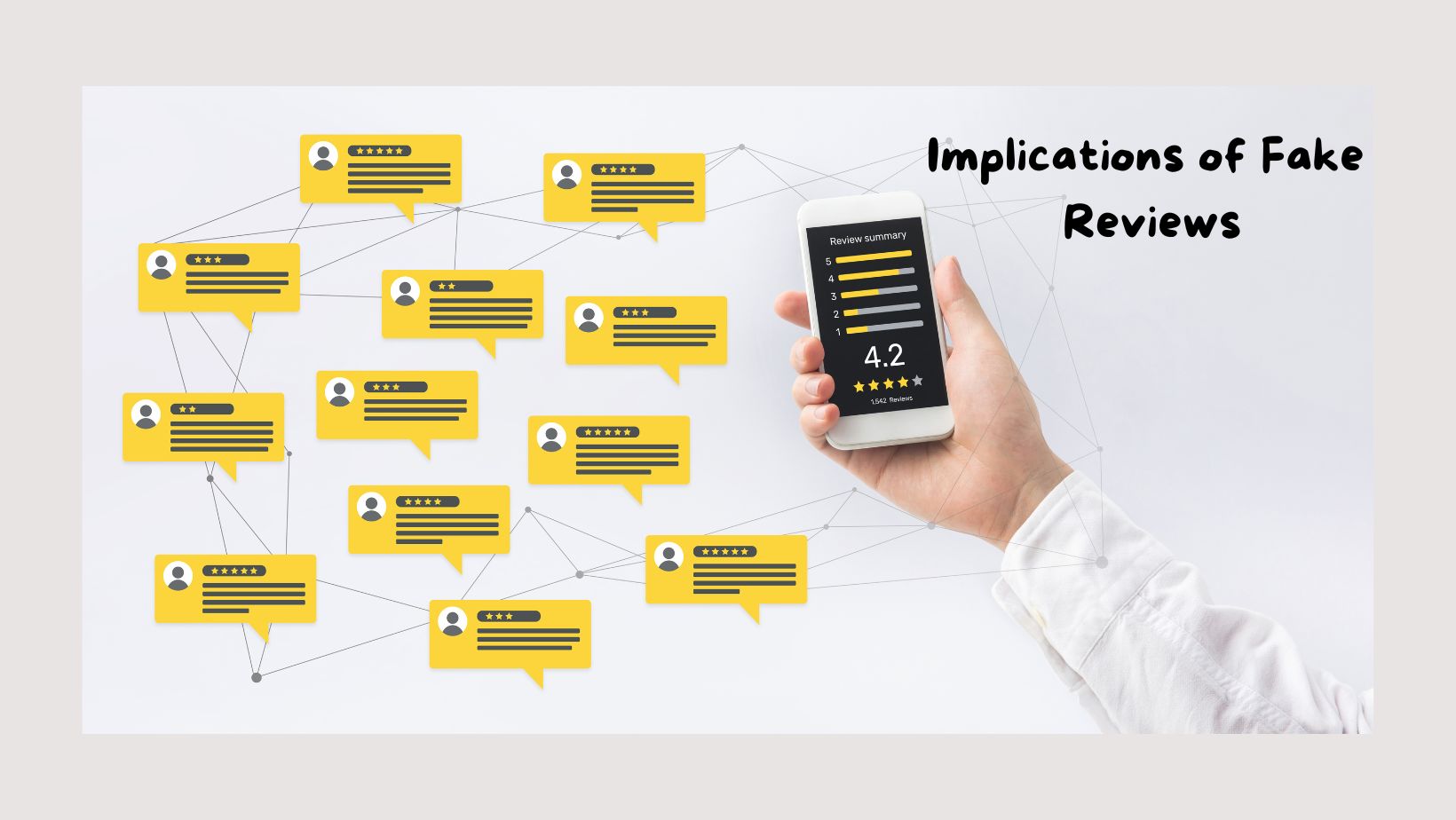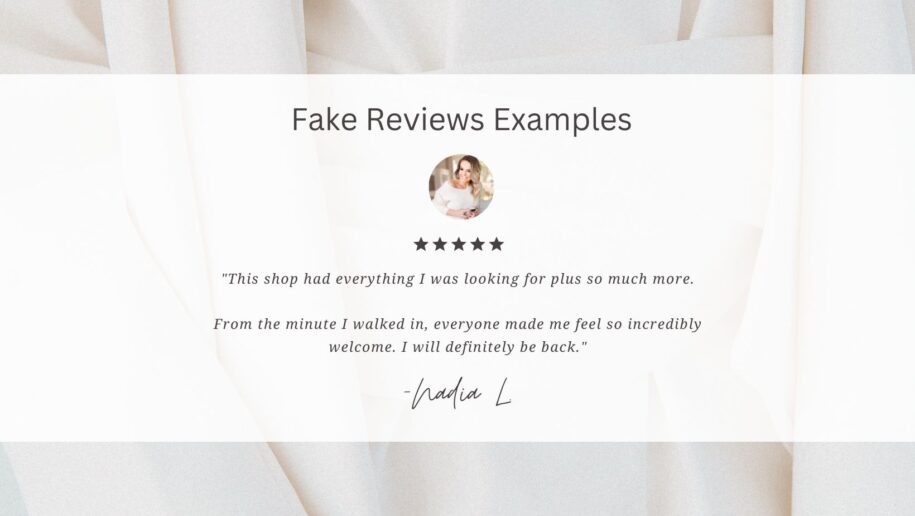In today’s digital landscape, online reviews play a significant role in shaping consumer perceptions and influencing purchasing decisions. Unfortunately, the rise of fake reviews has tarnished the authenticity of the review ecosystem. Fake reviews are deceptive attempts to manipulate public opinion, and they pose a challenge for both businesses and consumers. In this article, we will explore various fake reviews examples and shed light on the implications they have on the online review ecosystem.
-
Paid Positive Reviews:
One prevalent example of fake reviews is when businesses pay individuals to write positive reviews on their behalf. These individuals often create fake accounts and post glowing reviews, artificially inflating the ratings and misleading potential customers. This unethical practice undermines the trust consumers place in reviews as a reliable source of information.
-
Negative Reviews as a Weapon:
Sometimes, competitors or disgruntled individuals may post fake negative reviews to damage a business’s reputation. These reviews are aimed at spreading misinformation, discouraging potential customers, and sabotaging the competition. Such malicious intent demonstrates the potential harm that fake reviews can cause to businesses.
-
Review Swapping:
In an attempt to boost their ratings, businesses may engage in review swapping with other companies. This practice involves businesses exchanging positive reviews to artificially inflate their reputations. While the exchanged reviews may appear genuine, they are not reflective of true customer experiences, deceiving those who rely on reviews for informed decision-making.
-
Review Mills and Content Farms:
Review mills and content farms are entities that specialize in creating large volumes of fake reviews. These operations often employ freelance writers who generate fabricated reviews for various businesses. These reviews are often generic, lacking in specific details, and can be easily detected by experienced readers.
-
Incentivized Reviews:
Incentivized reviews occur when businesses provide incentives, such as discounts, free products, or rewards, in exchange for positive reviews. While incentives can be legitimate ways to encourage customer feedback, when they are offered in exchange for biased reviews, it compromises the authenticity and trustworthiness of the entire review system.
-
Astroturfing:
Astroturfing refers to the creation of a false grassroots movement by organizations or individuals to manipulate public opinion. In the context of online reviews, astroturfing involves businesses or individuals creating multiple fake accounts to post positive reviews about a product, service, or brand. This deceitful tactic aims to create an illusion of widespread support and positive sentiment.
-
Review Automation and Bots:
Advancements in technology have given rise to automated systems and bots that can generate fake reviews. These programs use algorithms to generate reviews that mimic human language and behavior. The sheer volume of fake reviews that can be generated through automation makes it difficult for platforms to detect and filter them effectively.

Implications of Fake Reviews:
Fake reviews have severe implications for both businesses and consumers:
a. Consumer Trust: Fake reviews erode consumer trust in online review platforms, making it harder for customers to rely on reviews as a genuine source of information.
b. Business Reputations: Businesses may suffer reputational damage when they fall victim to fake negative reviews. Negative reviews can discourage potential customers, leading to decreased sales and revenue.
c. Unfair Competition: Businesses that engage in fake review practices gain an unfair advantage over their competitors who rely on genuine customer feedback. This undermines fair competition and disrupts the integrity of the market.
d. Decision-Making Biases: Consumers may make uninformed decisions based on fake reviews, leading to dissatisfaction with products or services that were misrepresented.
e. Platform Integrity: Fake reviews pose a challenge for review platforms in maintaining the integrity of their systems. Platforms must invest in sophisticated algorithms and moderation processes to combat fake reviews effectively.
Combating Fake Reviews:
To combat the proliferation of fake reviews, various measures are being implemented:
a. Algorithms and Machine Learning: Review platforms employ advanced algorithms and machine learning techniques to detect patterns and anomalies in review activity. These algorithms can identify suspicious behavior and filter out fake reviews.
b. Manual Moderation: Platforms also rely on human moderators who manually review flagged content and assess its authenticity. These moderators play a crucial role in ensuring the accuracy and fairness of the review ecosystem.
c. Consumer Education: Educating consumers about the existence of fake reviews and providing guidance on how to identify them can empower individuals to make more informed decisions.
d. Legal Actions: Some jurisdictions have implemented laws and regulations to deter the creation and dissemination of fake reviews. Businesses found guilty of engaging in fake review practices may face legal consequences.
Conclusion: Fake Reviews Examples
Fake reviews pose a significant challenge in the online review ecosystem, deceiving consumers and harming businesses’ reputations. Understanding the various examples of fake reviews and their implications is crucial in navigating the digital marketplace. By implementing robust detection systems, engaging human moderation, and promoting consumer education, we can work towards preserving the authenticity and trustworthiness of online reviews. Ultimately, a transparent and reliable review ecosystem benefits both businesses and consumers, facilitating informed decision-making and fostering trust in the digital age.
Expose the truth behind fake reviews with our comprehensive collection of examples. Understand the tactics and red flags to spot fake feedback. Equip yourself with the knowledge to make informed decisions. Don’t let fake reviews deceive you. Contact us today to explore real-world examples of fake reviews and safeguard your purchasing choices.

